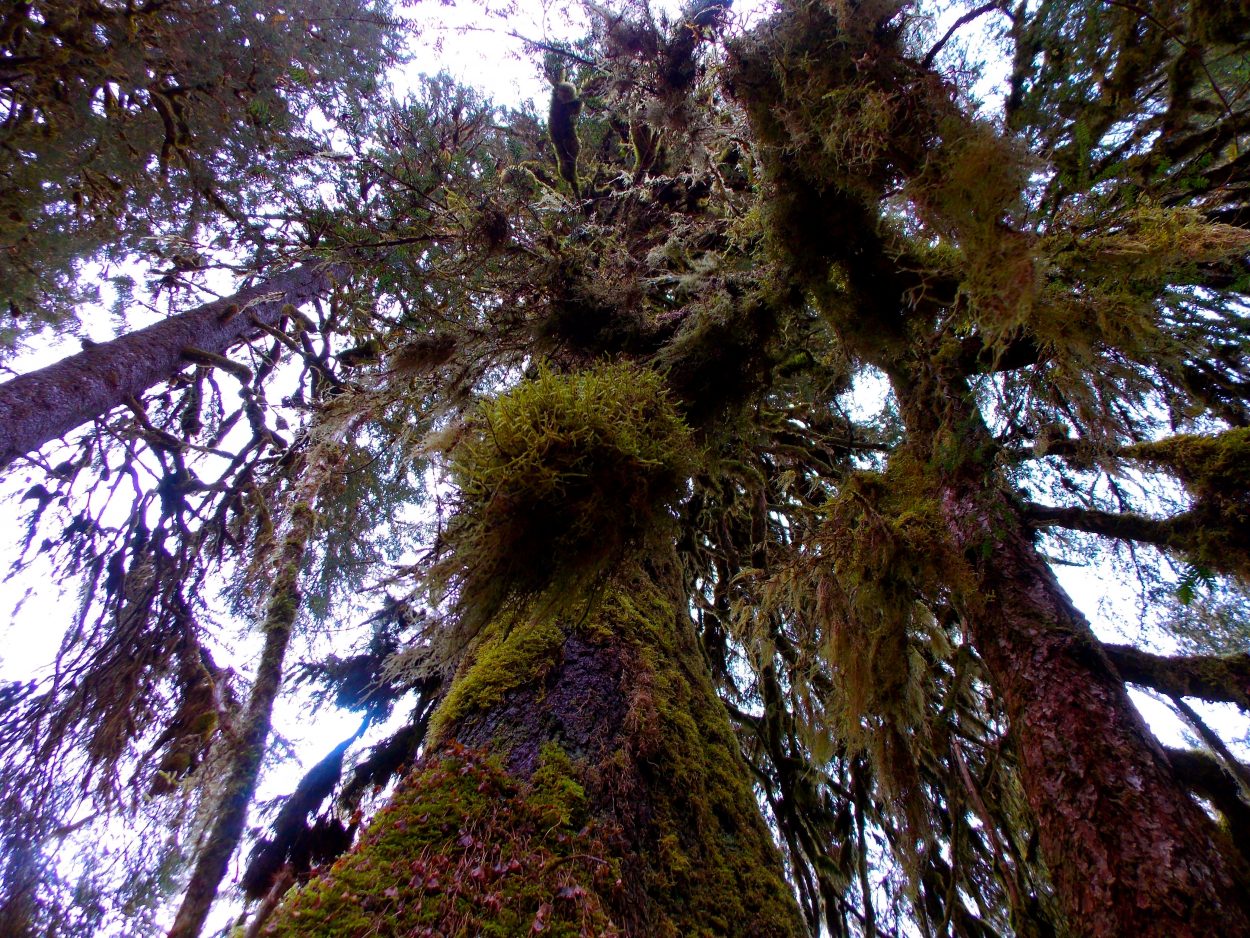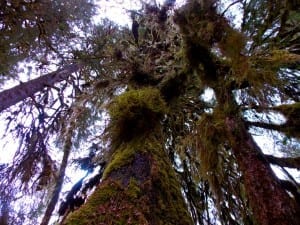The new forest plan proposes a 16 year transition from logging old growth trees to younger, smaller trees on the 17-million acre forest. The plan is similar to a zoning map for managing the national forest.
At a recent meeting of the commission that looks at zoning in Petersburg, Joe Sebastian of Kupreanof spoke against the plan calling the whole thing indigestible.
“There was no science in this plan,” Sebastian said. “And that’s what kind of makes it so damnable, communities weren’t represented.”
Sebastian wasn’t alone. Commission members also had problems with it. While the federal plan is supposed to create sustainability in the forest, the planning members didn’t see it that way.
“We’re looking at a situation where the whole management plan is flawed,” said Commission Chair Chris Fry, who owns a saw mill on Mitkof Island.
He said the plan’s proposed shorter harvest cycle is the wrong way to go.
“I think it’s going to create just a poor environment out there. It’s not going to work for mills,” Fry said. “The only thing you can do with short harvest cycle on spruce and hemlock is produce two by fours and framing lumber and the problem with that is and the problem with that is we have to pay the shipping cost to get them to market from here. And you’re not going to be able to compete with all the timber down south.”
But Fry believes there is potential economic benefit for logging in the Tongass by going to a longer harvest cycle.
“It would produce a higher quality product which could be marketed for a higher dollar value,” Fry said. “We can harvest less timber and have the same amount of dollars come in.”
Fry said the timber should be processed in Southeast and should focus on shipping out a more finished product. He said that’s more viable for small mill operations.
Commission member Dave Kensinger also didn’t think exporting young growth trees was a good business idea.
“I don’t think it’s a good use of the resource at this point in the history of the Tongass to be canning logs and the shipping logs in the round for export,” Kensinger said.
Kensinger brought up past local timber sales that he didn’t think went well.
“We’re trying to protect the island so that there is enough timber here on the island so you can support a local milling industry,” Kensinger said. “And my concern is with their past plan or the past timber sale that they had proposed for Mitkof is most of that timber wasn’t set up for small mills, it really wasn’t a small timber sale.”
Besides the issue of moving to a young-growth industry, the commission had issues with other specific details in the plan. Whether it was exporting hydropower or drinking water, Burke wanted the plan to benefit the region the most.
“Southeast communities should have higher precedence than everyone else,” Burke said. “I mean we’re the ones that have to live with the impacts.”
“So then whatever they do should be benefiting our community,” added Fry.
The Planning Commission will compile its comments and send them in to the Tongass Land Management Plan. Members also plan to present them to the borough assembly at their next meeting February 22. That’s also the deadline for the public to comment on the new plan for the Tongass.











